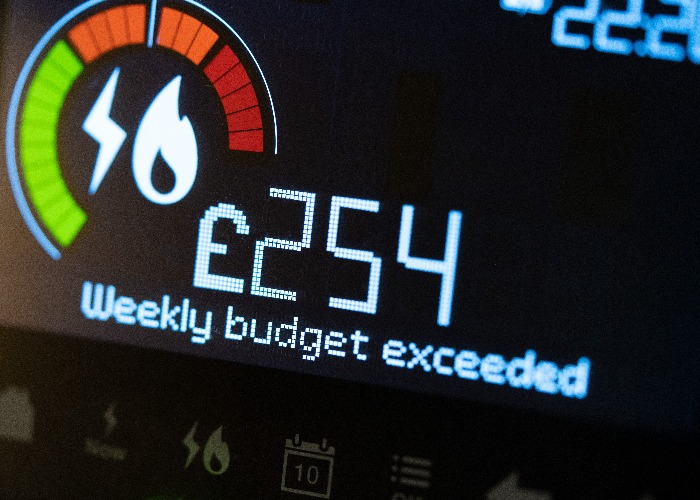Opinion: Ofgem should bring back cheap deals for energy switchers to improve competition and help cut bills

As Ofgem blocks the return of cheap energy tariffs for new customers, Katy Ward argues that these deals are essential for maintaining a competitive market.
Energy regulator Ofgem surprised many this week by reversing its plans to lift a ban that prevented energy companies from offering their cheapest deals to new customers.
In effect, this means that Brits will face a longer wait for lower bills as energy giants will have little reason to compete for our business.
The news came the same week that chancellor Rachel Reeves revealed plans to scrap Winter Fuel Payments – worth up to £300 per year – for the vast majority of pensioners.
Here’s why I believe that cheaper deals for switchers should make a comeback sooner rather than later…
6 secrets your energy company (probably) won’t tell you
What are acquisition tariffs?
Before discussing the implications of Ofgem’s decision, it’s important to explain the concept of ‘acquisition’ tariffs.
In simple terms, these tariffs allow energy companies to reserve their cheapest prices for new customers.
As such, they were the driving force behind the ‘golden age’ of energy switching during which customers could regularly move suppliers to get a better deal on their bills.
In many cases, customers could cut their annual energy costs by as much as 25% by moving providers.
However, the energy market changed drastically when war between Russia and Ukraine caused wholesale energy prices to soar during a cost-of-living crisis.
As a result, energy prices for customers reached record levels, with the average bill climbing to £2,500 in October 2022.
The best and worst energy suppliers revealed
The history of the ban
With the energy sector in crisis, Ofgem introduced a ban on these tariffs in April 2022 in the hope of bringing stability to markets.
With providers no longer able to compete for our business, numbers of switchers unsurprisingly fell off a cliff.
According to Ofgem’s data, approximately 318,000 gas and electricity customers switched providers in February this year, which was down from 986,000 in March 2021.
While the ban had originally been intended to last until March 2025, the regulator launched a consultation into potentially reversing it in May.
At the time, Ofgem argued that the return of acquisition tariffs could reintroduce competition into markets.
|
PROMOTION
|
||
|
The results of the consultation
Following three months of consultation, however, the regulator seemed to do a U-turn this week and announced plans to retain the ban until at least March of next year.
Ofgem said its decision was based on concerns from suppliers and consumer groups, many of whom argued that a reversal could penalise existing customers who chose not to switch.
The regulator also found that a return of acquisition tariffs could be unfair to those in debt with their supplier, who may not be able to move to a more competitive deal.
So, what’s the problem?
On the face of it, Ofgem’s decision makes sense – it seems unfair to reserve cheaper deals to those with the time, resources and inclination to switch. And there’s no denying that the ban on acquisition is welcome news for loyal customers.
However, in my view, the move also effectively puts the kibosh on meaningful competition in energy markets.
Without acquisition tariffs, energy suppliers have little incentive to undercut each other to win our business.
While there are several fairly decent energy deals on the market at the time of writing in August 2024, these are nowhere near as competitive as the top tariffs we would have seen five years ago.
And we need competition in markets more than ever with a host of other factors currently driving up energy prices.
Sadly, the war between Russia and Ukraine is likely to keep wholesale energy prices high regardless of what happens with acquisition tariffs.
Opinion: energy giants should convince us smart meters are worthwhile rather than forcing them on us
And, what’s the answer?
It goes without saying that we should ensure that everyone has access to affordable energy, especially the most vulnerable.
However, I don’t believe that a ban on acquisition tariffs is the best way to achieve this. Afterall, these tariffs have historically allowed millions of savvy switchers to cut their energy bills.
In fact, I’d argue that many of the issues driving fuel poverty lie with central Government, some of which are beyond Ofgem’s control.
If we want to ensure that the poorest aren’t overpaying for their energy, a more effective solution would be to extend additional support to vulnerable households through programmes such as the Winter Fuel Payments, The Warm Home Discount Scheme and Cold Weather Payments.
That’s why it seems particularly unfathomable to me that the new Government would choose to axe Winter Fuel Payments for so many at a time when pension poverty is rife.
Time to bring back social tariffs?
The reintroduction of social tariffs could also be a welcome move – these discounted tariffs were designed to provide more affordable deals to the most vulnerable.
Although these were once a lifeline for those most affected by fuel poverty, they have been gradually phased out since 2011.
Likewise, I’d argue that a ban on acquisition tariffs isn’t the answer to ensuring those in debt are treated fairly by their supplier.
Here, the solution lies in enhanced consumer rights. For example, reducing or even eliminating late payment charges for those who are genuinely struggling could help prevent existing debts from mounting up.
It’s true that none of these suggestions is perfect, but we are trying to make the best of a deeply flawed system that is fundamentally based on competition. Acquisition tariffs at least provide some relief for hard-pressed customers.
Have your say
What do you think of Ofgem’s decision? Do you agree that the regulator’s ruling ensures fairness for existing customers? Or do you believe the energy market is a total shambles and we need to do anything we can to reignite competition?
We’d love to hear your thoughts in the comments below.
Comments
Be the first to comment
Do you want to comment on this article? You need to be signed in for this feature
